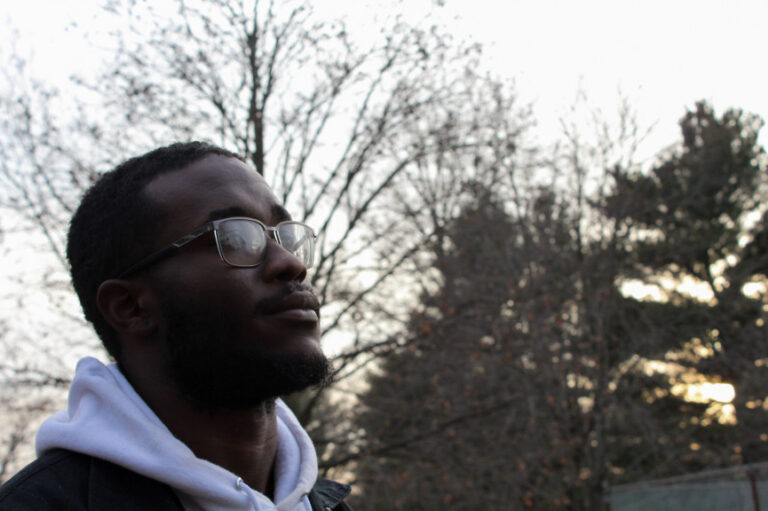This story includes details of violence some may find disturbing.
Shamar Betts can still recall in vivid detail the moment he discovered the dead body of his friend Corsean. It was 2014. Betts was 13 years old at the time.
They were hanging out near their middle school on the South Side of Chicago when a car sped by, shooting in their direction. Betts ran one way, Corsean the other.
When Betts returned to check on Corsean, he found him shot in the head. He stared in disbelief of what just happened. He’ll never forget the moment Corsean’s family arrived.
“It was a terrible feeling … They all came up there and was over him crying and screaming,” Betts said. “I hate that part. Once the family finds someone laying out, you just hear so many screams and crying.”
Betts said Corsean was one of several classmates who died that school year from gun violence.
In 2014, federal data shows firearms claimed the lives of nearly 3,800 people ages 10 to 24 in the U.S. The problem has only gotten worse. Firearm injuries were the leading cause of death among children, teens and young adults in 2021.
Betts, now 23, said he’s grateful he moved away from that environment before he got sucked into it.
Growing up, many of his friends joined gangs, seeking role models and drawn to a lifestyle they saw glorified in rap music and pop culture.
Betts would go on to make some choices that significantly altered his course in life. In the aftermath of the murder of George Floyd in 2020, he incited a riot that led him to spend time in prison.
But today, Betts said he is focused on turning his life around. He wants to help kids who are feeling pressured to join a gang, turn to violence or make other harmful choices know they have another option.
He works for a local nonprofit that provides education and mentorship to children and teens in Champaign-Urbana and plans to enroll in college to study psychology and become a guidance counselor.
“I’ve seen kids that grew up like me turn to a whole other route,” Betts said. “I want to be there for those types of kids [so that] if they do see that type of pressure, they can have someone to turn to. I know how hard it was for me to try to do it on my own.”
A childhood of violence, loss and grief
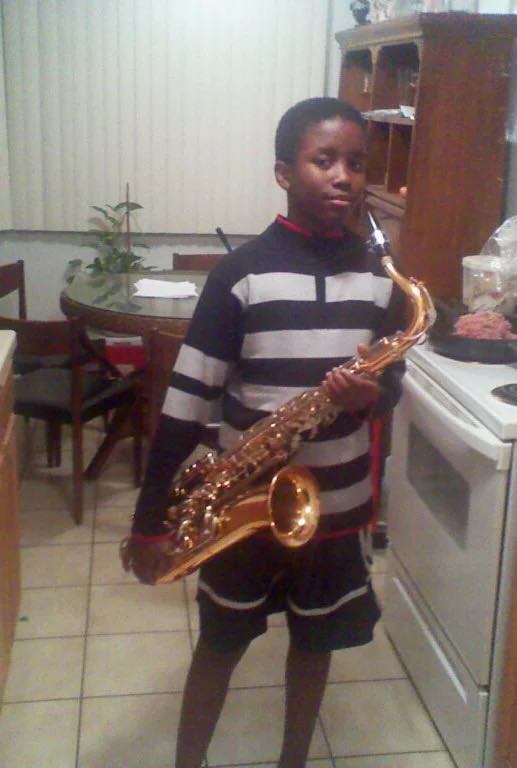
For the first 12 years of his life, Betts said he was protected from the violence taking place in the neighborhood he was raised in. His mom didn’t allow him to hang out with the neighborhood kids and he wasn’t allowed to go alone to nearby places, like the store or a park. Betts said his mom wanted him to focus on his school work. She also enrolled him in after-school activities like chess and band.
Betts said he’s grateful his mom sheltered him this way because many people who grew up where he did got sucked into the negative aspects of city life. A fast-paced life of criminal activity has a certain draw and gives people a “thrilling” feeling, he said.
In fifth grade, Betts’ mom enrolled him and his sister in a private Catholic school. She wanted them to receive a better education and be protected from the influence of the kids in public schools, who she thought were dangerous and troublesome.
By this point, Betts had become really invested in his after-school activities. He enjoyed his daily band practices and weekly performances and won most of his weekend chess tournaments.
But Betts’ mom’s life was cut short in April of his sixth grade year. She died of a heart attack when Betts was 12. He said he doesn’t remember much from that time, other than feeling extremely depressed at times, numb at others.
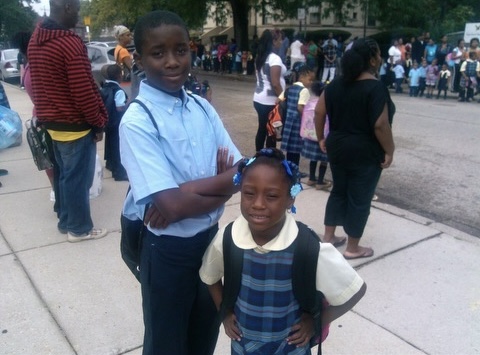
With his mom no longer around, Betts said he quickly discovered why she had put so much effort into sheltering him from the dangers around him.
Not long after his mother’s funeral in 2013, Betts recalls walking out of a corner store with one of the neighborhood kids. Across the street, a car sped past a small crowd of people. Betts said a passenger of the car hung out of the vehicle and began shooting toward the group. Betts and the other child watched as five or six people were shot and fell to the ground while the others ran or crawled away. He couldn’t stop staring.
“At the time, the way it looked, it just seemed like a movie,” he said. Those deaths were among the more than 400 homicides in Chicago that year.
Over the next year, Betts struggled. He desperately missed his mom and had no one to motivate him to excel in school and extracurricular activities. He was disappointed that he had to switch from private school to public school.
“Now I’m back at this school that barely even has programs,” he said. “I don’t have that extra push, and I’m surrounded by negativity.”
Betts started hanging out with more neighborhood kids and saw what his mom meant when she called them troublesome. He watched as they threw rocks at cars and shot Roman candle fireworks at one another. He realized he didn’t enjoy the same things and didn’t want to be like them.
“I wasn’t going to force it or try [to do certain things] if I felt like it was something that wasn’t good for me,” he said.
Betts said his mom’s voice in his head became motivation to push him toward finding a way out of the negativity. He also came to realize he had the power to make better decisions for himself.
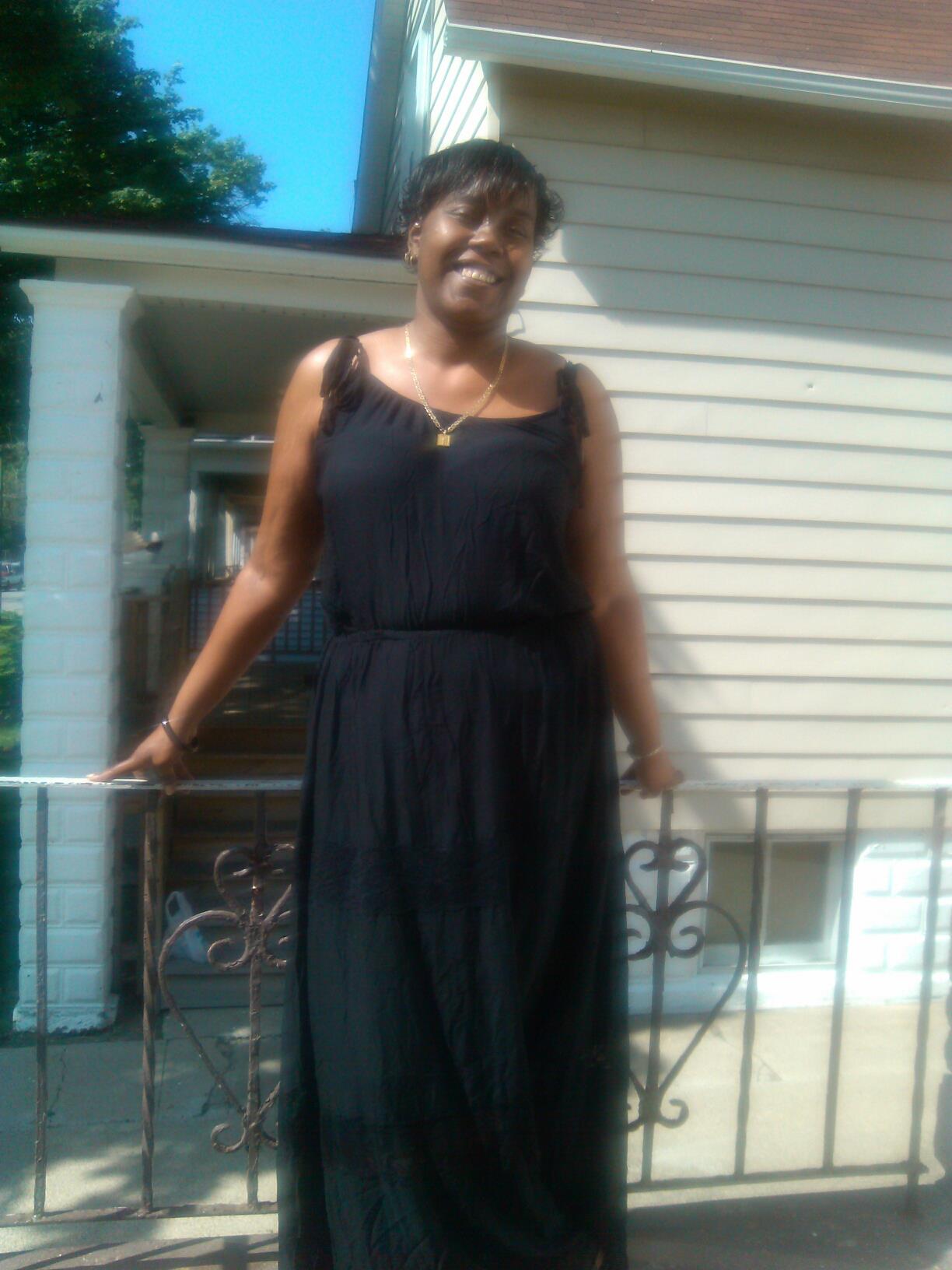
“I have a choice to pick and do what I want and not just survive,” Betts said.
From there, Betts said he decided to put more effort into school and spent more time with kids who were focused on staying out of trouble.
Over the next three years, he would move from Chicago to Jackson, Mississippi, and then to Urbana, Illinois, where he lives today.
The move to Jackson came when he was in seventh grade, after his maternal grandmother and aunt visited them. They were shaken by an experience they had upon arriving in their Chicago neighborhood in an SUV with tinted windows. Betts said a few guys, who keep an eye out for cars they didn’t recognize coming into the area, approached the car and tapped on the windows with their guns. They told the women to roll down the windows so they could talk.
The guys left after realizing who the women were.
Betts’ grandmother and aunt then found a disappointing scene when they entered the house where Betts and his siblings had been living with their dad. It was dirty and “messed up” compared to how his mom kept it when she was alive, Betts said — messy because he and his siblings were essentially raising themselves while their dad was away at work most days.
“My grandma was like, ‘This is unacceptable. Y’all coming with us to Mississippi,’” Betts said.
Betts and his sister moved to Mississippi, while Betts’ brother stayed in Chicago with his dad. Betts said his brother was taken in by the “suck-in” effect of Chicago and refused to leave.
In Mississippi, Betts said he no longer felt challenged in school but found ways to excel and take initiative to learn on his own. His English teacher saw he was more advanced than the other students, so she often brought him books to read and other materials to learn from.
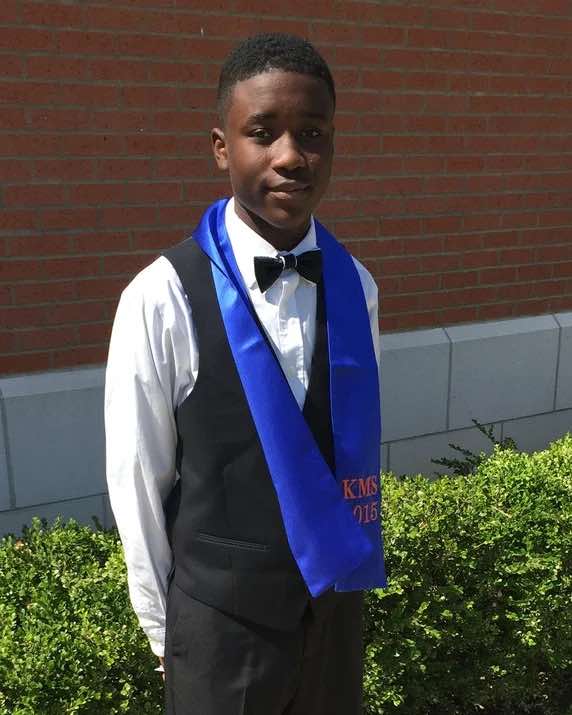
Toward the middle of the next school year, Betts was struggling to get along with his aunt. He decided to move to Urbana with his brother after his 10th grade year.
“Mississippi is far too slow, Chicago was far too fast,” Betts said. “I like the setting here; it was diverse. It was different, a change of life.”
Betts said his brother decided to move back to Chicago after a year. Betts couldn’t afford an apartment on his own, so he lived out of his car until a close friend’s grandmother, noticing his situation, invited him to stay with them.
A life-altering decision
Betts graduated from high school in the spring of 2019 and took on two part-time jobs working with children at the Urbana Park District and the Don Moyer Boys and Girls Club in Champaign. He said he got accepted into the University of Illinois at Urbana-Champaign and was excited about where his life was heading.
But a few months before he was slated to start his freshman year, Betts, who was 19 at the time, made a decision that would change his course in life.
George Floyd was killed by a white police officer in Minneapolis on May 25, 2020. Betts found out about Floyd’s death through social media and eventually saw the viral video footage of the officer kneeling on Floyd’s neck for nine and a half minutes. He was immediately enraged.
“My first instinct, selfishly, I guess, was just thinking as a Black man, like how easy that could have been me, how easy it could have been one of my loved ones,” Betts said.
Betts said he spoke with his friends about how it felt, as Black men, to watch Floyd die this way. They agreed something needed to be done. Betts attended a peaceful protest in Champaign-Urbana a few days later but was disappointed by its impact.
“It’s like we wasn’t being heard, or we wasn’t really displaying how we actually felt,” he said.
After the protest, Betts voiced his frustrations to his brother in Chicago, who sent him pictures and videos of riots taking place there. Then a thought crossed his mind: A riot would be more impactful than a peaceful protest.
The next morning, Betts said he impulsively created a flier that contained a photo of a burning cop car and the words “Black Lives Matter RIOT.” He included a location, Market Place Mall in Champaign, and a time, 3 p.m. He encouraged people to bring family, friends, posters, bricks and bookbags.
Betts posted the flier on Facebook and put his phone away. When he checked it a few hours later, he was shocked to see that he’d received hundreds of notifications from the post. He hadn’t expected the post to receive any attention, and he had mixed feelings about it.
“I felt inspiring, or I felt like I was being heard, opportunity to make change,” he said.
Betts arrived at the mall just after 3 p.m. and estimated there were more than 150 people present, including supporters, counter-protesters and reporters. He didn’t notice any police. Once he gave the “A-okay” to the crowd, he said people started running into the mall, vandalizing and looting stores. Initially, Betts felt proud for having initiated the riot, and he even gloated about his role in it while it was happening. In a moment of excitement, he grabbed toddler outfits from Old Navy but dropped them after realizing what he was doing.
“It was definitely out of character for me because I’m normally a laid-back person,” Betts said. “The energy that I had that day, even the anger and aggression that I had. For those feelings, I’m not normally like that.”
Betts said part of why he had such an outburst was because of built-up stress from that year. He had just gone through a breakup, and he was about to lose his apartment after becoming unemployed due to the COVID-19 shutdown.
“I think when I was put in that position that I was actually making a change, people were actually listening to me, I was overwhelmed,” he said. “It was like a burst, just a burst of everything coming out.”
Betts said he left the riot after an hour and a half to go to a friend’s house. Reality finally hit when he checked his phone and scrolled past his employee picture online and headlines like, “Former Urbana Park District Employee incites riot at Marketplace Mall.”
“In that moment, probably out of my whole journey, that’s when I felt the most regret,” Betts said.
Police arrested Betts a few days later. He’d spend the next year in jail followed by almost two years in a federal prison in West Virginia. He’s currently out on probation.
During the legal proceedings, he said he came to the full realization of what he had done.
“After sitting in jail and listening to them bash me so much in court, I realized the wrongness. I realized what I did wrong completely,” he said. “I realized I could have did better.”
Betts would later learn that he would be charged a $1.6 million restitution for the damages caused by the riot, which would require him to pay 50% of his disposable income every month until the restitution is paid off. He’s now working with a lawyer to try to appeal his restitution and expunge his criminal history from his record.
In prison, Betts said violence was prevalent, and he grew unfazed by it over time. He said prison was similar to his upbringing in Chicago —- just more gruesome. In Chicago, he saw people get shot, but in prison, he watched people get stabbed to death, which was even more horrifying than watching someone die from a gunshot wound.
“Seeing somebody constantly getting stabbed and screaming, running, squirming from it, like grown men, until he doesn’t scream anymore. That’s different,” he said.
The part of prison Betts hated most was what he called “institutionalized behavior,” which he described as people getting brainwashed into a “prison mindset.” It bothered him to see how used to prison life some people got.
He said in prison, people go through phases of life. He empathized with a 70-year-old man who had been in prison for 50 years for a drug charge.
“‘Throughout 50 years, do you know how much my mindset matures and develops and stuff like that, and I’m still suffering from this crime?’” he recalled the man saying. “I feel like that’s just a terrible system to have. The justice system can be very cruel.”
Betts said he used his time in prison to work on self-improvement and continue to learn.
“I taught myself sign language, played a lot of chess, read a lot of books and just planned on what I was going to do when I got out,” he said.
Betts got out of prison on June 14, 2023. He’ll be on probation for a couple years and said he is trying to make it day by day.
“It’s hard starting from nothing … I came out of jail with the outfit I came into jail with and just started from there,” Betts said.
Looking ahead to a future of mentorship
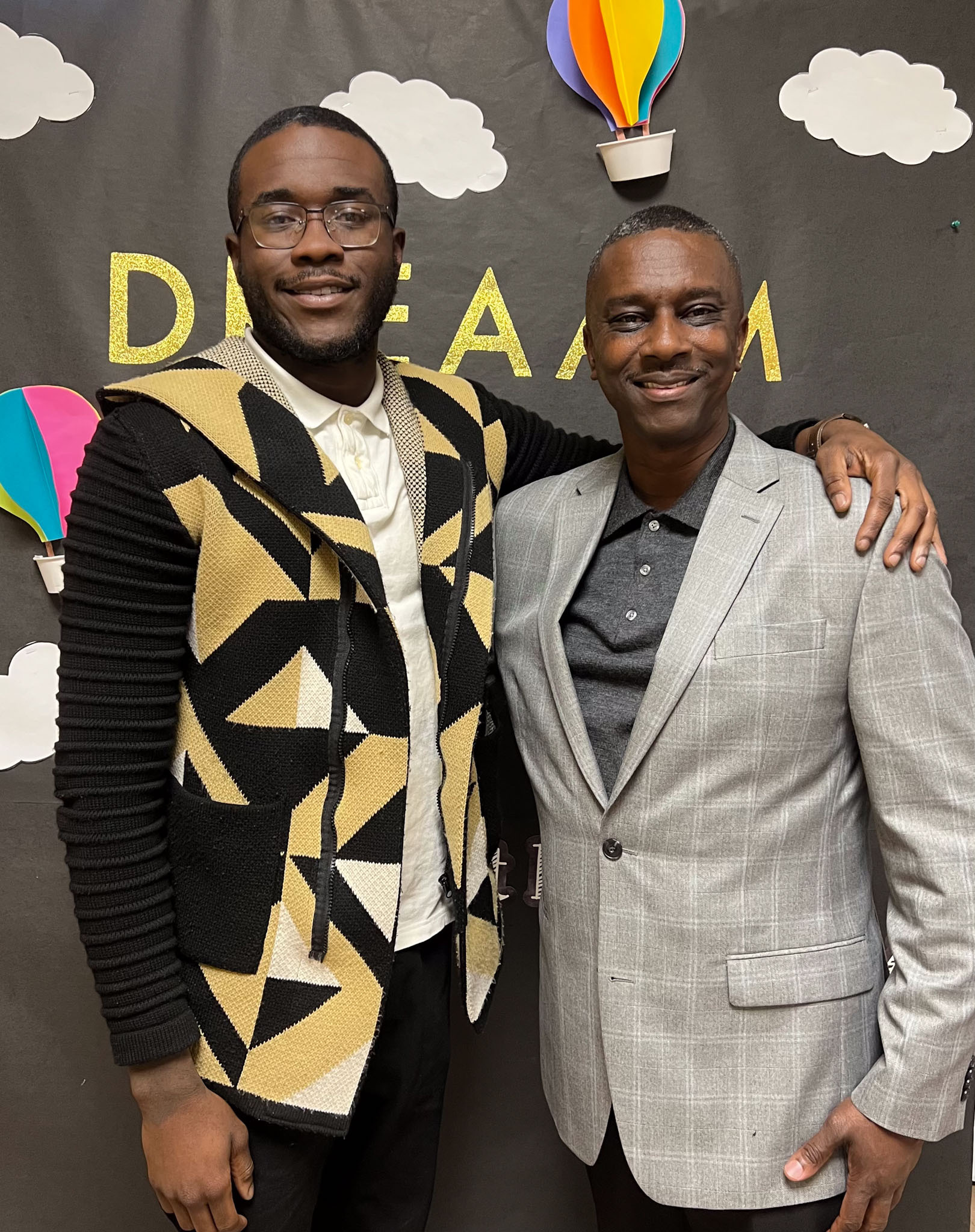
About two months after getting out of prison, Betts received a call from a man named Tracy Dace. Dace is the founder and CEO of Driven to Reach Excellence and Academic Achievement for Males, or DREAAM — a nonprofit in Champaign that provides mentorship and educational programs to young people.
Dace said one of Betts’ previous mentors had reached out to him about Betts before Betts went to prison. Dace said he doesn’t recall why, but the two didn’t connect back then. When another mentor of Betts’ reached out to Dace while Betts was transitioning out of prison, Dace said he saw it as a sign.
“As a person of faith, I was like, ‘Well, maybe God is trying to tell me something, that I need to connect with this young man,’” Dace said. “I’m very happy that I did. He’s a very intelligent young man, and I’ve enjoyed working with him.”
Dace offered Betts a job at DREAAM. In September, Betts worked with Dace to prepare the space for programs that would roll out in the fall, and later helped provide transportation for kids to and from DREAAM. This year, he’s stepping into a new role as an achievement coach, working with fourth and fifth graders.
Betts said being on probation has been challenging. He has to get permission to visit his brother in Chicago, and as he considers options for colleges, he’s limited to in-state schools.
But he uses lessons learned from the past to help him stay focused on his goals.
As a kid in Chicago, Betts said he learned how to separate himself from negative influences by focusing on his education and activities like chess and band. In the future, he hopes to help kids who are growing up in difficult environments use the same approach to make good decisions.
Betts wants to get a grant to attend college, study psychology and become a guidance counselor. His goal is to connect with and mentor children and young adults who grew up in similar situations as he did.
“Just try to show them the things that I learned or could have learned, like things that I wish I did differently and help them stay focused, give them an opportunity, kind of like Mr. Tracy do to pull them out the streets and clear their minds in different ways,” Betts said.
“I call myself lucky,” he said. “Being where I’m from, some did die, and I didn’t. Some turned to a gang … They used to be in the chess club with me, now they’re in jail for shooting someone.”
Dace said early intervention is the most effective way to disrupt cycles of crime, violence and poverty among young people. He said this is what DREAAM tries to accomplish through mentoring.
DREAAM is a “multifaceted way of reaching children and providing them with a variety and a wide range of experiences and skill building so that they can have what they need in order to grow up and be healthy and successful,” Dace said.
Dace has helped Betts build his professional network. Betts said he learned about a Black leadership conference in Chicago where he connected with people who might be able to help him with his career. Betts said he also learned about grants he could apply for to help him pay for college. Betts said he looks up to Dace.
“He’s actually a big role model to me,” Betts said. “He’s very involved with the community, very aware of the things that’s going on and actually wants to make a change.”
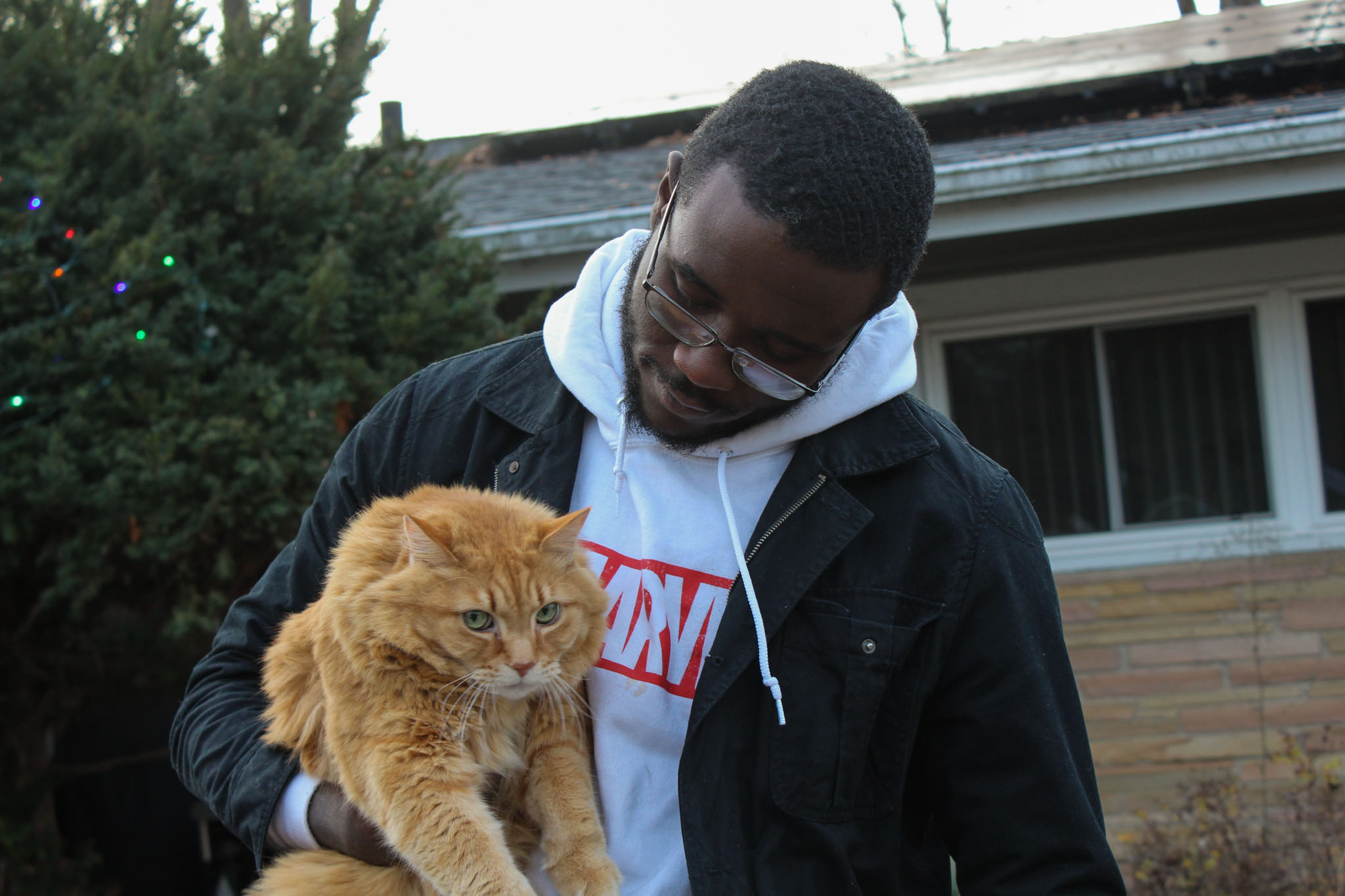
Looking back on his life, Betts said he has mixed feelings about the riot and how it played out.
“I don’t regret the emotion and energy that came with it, but I do regret the innocent people that had to suffer, like the businesses and vandalism and stuff like that,” he said. “They had nothing to do with George Floyd’s death, and even the police officers that had to deal with the stuff going on there — they’re police officers, but they’re not those police officers, and they may have never even done anything close to that.”
Betts said he realizes many people will be quick to judge him for the riot and going to prison. He understands why, but said he wants people to also see how he has been able to overcome adversity in his life.
“There’s a lot of sides to me,” Betts said. “Yeah, I went to prison, and I also grew up in a terrible part of Chicago, but my mindset is different. The way I think, my goals. I don’t think I match the image of what you would think of somebody that’s been in prison.”
Betts said he feels each major life event led him in a direction he’s thankful for.
When his mom died, he said he learned how to find his own motivation. Growing up where he did in Chicago forced him to learn how to adapt, as he sometimes had to avoid dangerous situations in order to survive. Betts said prison taught him patience since he didn’t have control over much of his life; He learned to be grateful for the things he had taken for granted, including his freedom.
“I don’t want to do a replay,” Betts said. “I don’t want to really change things because each of those situations helped make me who I am, led me to some route that led to another.”

